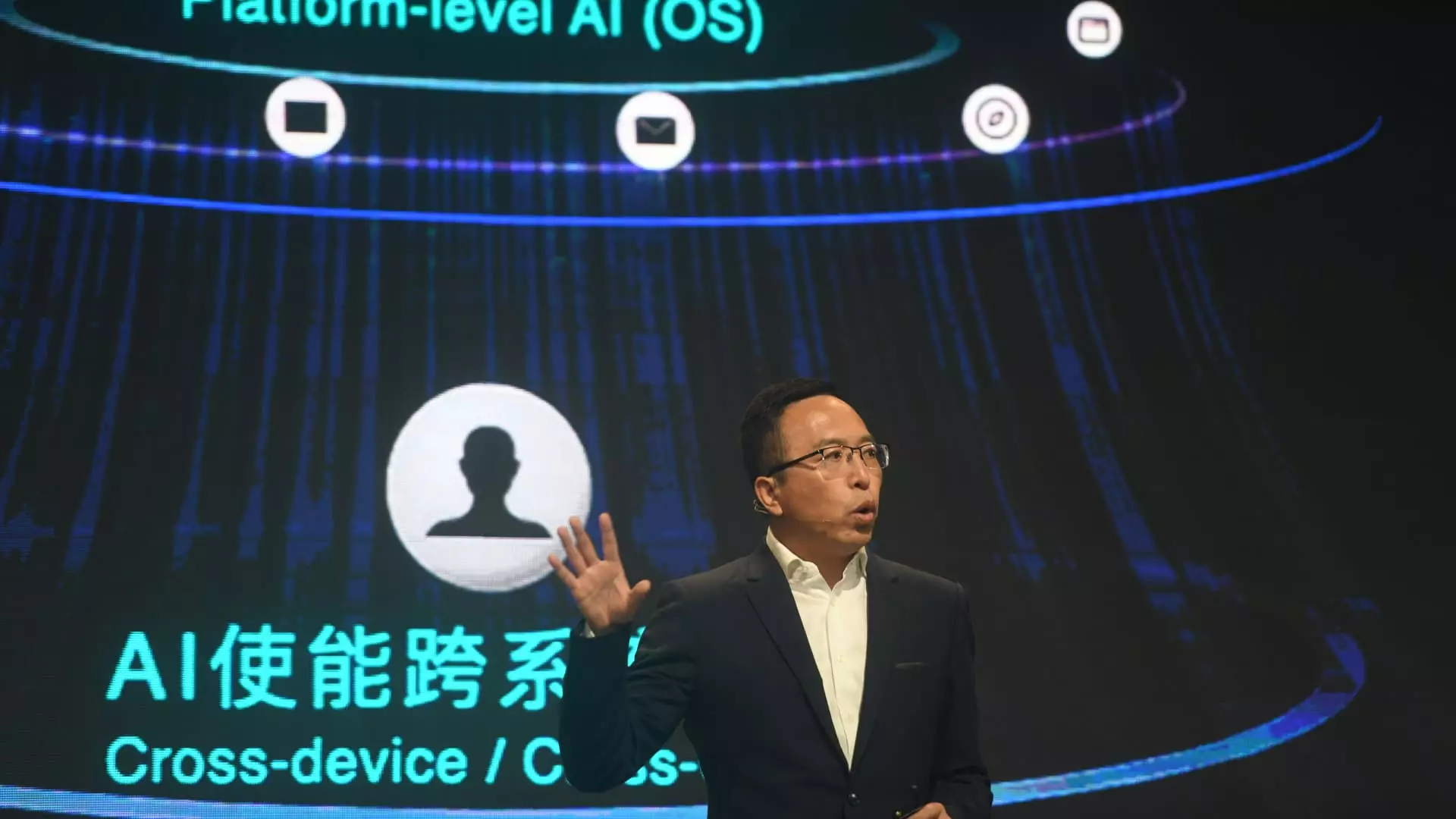The smartphone industry is undergoing a transformative phase, ignited by the widespread adoption of artificial intelligence (AI) features. Notably, Chinese manufacturers are spearheading this evolution, forcing established brands like Apple to rethink their positioning—and not just in the competitive landscape of technology, but in cultural consumer dynamics as well.
As domestic brands like Huawei, Honor, and Xiaomi roll out advanced AI capabilities, Apple finds itself at a crossroads. The imminent launch of Apple Intelligence for eligible devices—a release expected to generate buzz but will not cater to the massive Chinese market—reflects a strategic misstep. As reported by Canalys, Apple has slipped from its top five positions in China, a market that has historically driven smartphone innovation. Now, players like Huawei have proactively chosen to innovate without relying on Western technology, showcasing their autonomy and adaptability in a swiftly changing environment.
Huawei’s recent overhaul of its HarmonyOS, designed entirely in-house and free from dependency on Google’s Android framework, signifies a landmark shift toward self-sufficiency. This move not only represents technological independence but also signifies a heavy-handed response to U.S. sanctions that previously dictated its operational choices. As Huawei continues to innovate with features like text translation and photo editing using AI, it stands as a testament to the company’s resilience and ambitions to lead on the global stage once again.
Following in Huawei’s footsteps, Honor—a brand that originated as a spinoff—is making significant strides to establish itself as a competitive force. Their latest Android-based Magic operating system underscores a focus on integrating AI as a virtual assistant. The nuances exhibited during a company demonstration reveal a future in which voice commands translate to actions on devices almost autonomously. Such capabilities, where a user can express simple, vague sentiments like “I’m tired” and receive a coffee order, illustrate the sophistication of AI technology as it seeks to enhance user experience.
This hands-free technology does not only cater to convenience; it highlights a burgeoning intersection between artificial intelligence and lifestyle. By employing partnerships with firms like Baidu for AI functions within China, while also coordinating with Google for their overseas devices, Honor showcases a versatile approach towards software development and market strategy.
With the anticipated launch of Honor’s Magic 7 smartphone on October 30—powered by the advanced Snapdragon Elite 8 chip—there is a palpable sense of urgency among competitors. Xiaomi is similarly set to unveil its own device bolstered by the same high-performance processor. The AI whispers of innovation among these contenders pose a formidable challenge to Apple, which must hasten to reinforce its image and attract consumers amidst an era defined by rapid advancements and shifting allegiances.
Analysts have noted that AI features not only enhance the utility of smartphones; they are also pivotal in swaying consumers during purchasing decisions. As Toby Zhu from Canalys noted, the new enhancements forge a compelling case for users contemplating a switch to rival devices. With the importance of local technology resonating deeply with Chinese consumers, this competitive pressure continues to mount against Apple.
Despite these formidable challenges within the Chinese market, Apple’s revenue from Greater China represents a significant share of its overall sales, albeit dwindling slightly from the previous year. The upcoming quarterly results, set for release on October 31, will be closely scrutinized for signifiers of market viability in this crucial region. The dialogues between Apple’s CEO, Tim Cook, and Chinese officials hint at the company’s commitment to maintain its foothold amidst increasing scrutiny over data security and cloud services.
As the market dynamics evolve, Apple finds itself juggling the need for innovation alongside the cultural and geopolitical implications of its business decisions. Meanwhile, as seen with the price fluctuations of the iPhone 16 Pro Max in second-hand markets, the response from consumers shows that brand loyalty may be slipping if perceived value diminishes in favor of emerging alternatives.
The rise of AI in Chinese smartphones foreshadows a seismic shift in the landscape of mobile technology. With local brands leading the charge, it’s an era rich with potential for innovation, but it also presents a formidable challenge to enterprises slower to adapt. The question at hand for Apple and others is whether they will take proactive steps to reclaim relevance or become relics of a bygone era in a world increasingly pivoting towards artificial intelligence.

